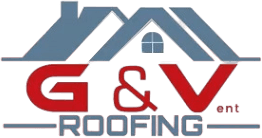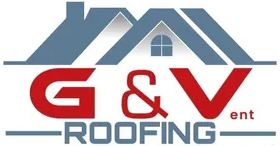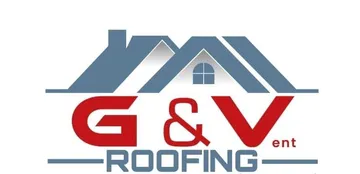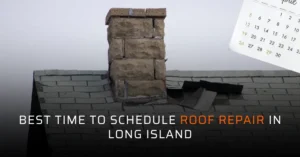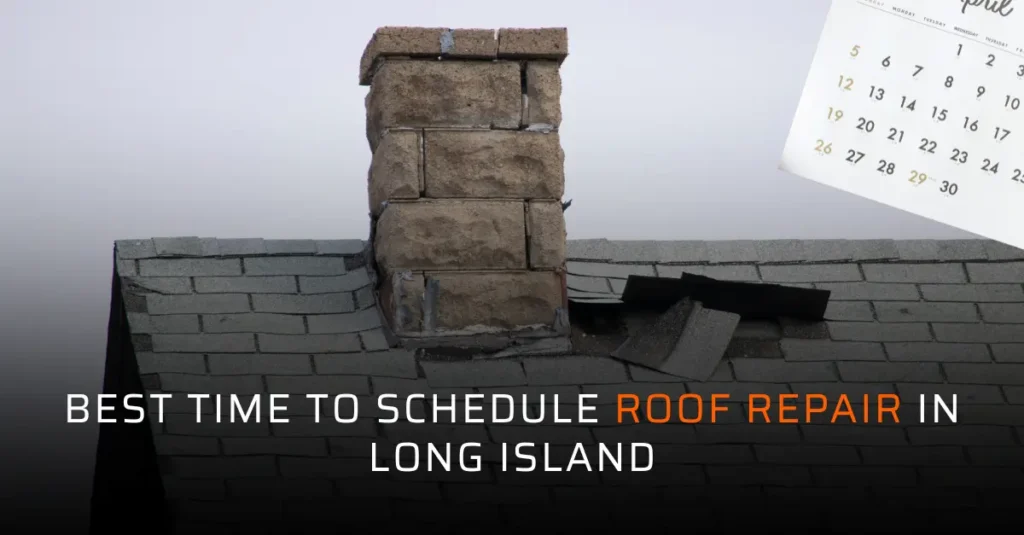
Delaying roof repair increases risk and costs. Roof damage—whether minor or structural—often worsens over time. Small leaks can lead to water intrusion, weakening roof decking and allowing mildew or rot to develop in your attic.
What Are the Long-Term Risks of Ignoring Roof Repairs?
- Structural degradation: Moisture weakens joists, rafters, and underlayment.
- Higher insurance premiums: Unrepaired damage can void parts of your home insurance policy.
- Reduced energy efficiency: Air escapes through damaged shingles or flashing, raising energy bills.
Damage Type | Resulting Problem | Urgency Level |
Leak near flashing | Ceiling stains, mold growth | High (Emergency roof repair) |
Missing shingles | Water seepage, insulation damage | Medium (Repair roof quickly) |
Sagging roofline | Compromised support structure | High (Urgent roof work) |
Homeowners should inspect for early damage after heavy rain or snow. You’ll read next how spring conditions create the best timing for these inspections and repairs.
Why Spring Is Ideal for Roof Repair in Long Island
Spring offers stable weather, ideal temperatures, and contractor availability. These factors allow for safer, faster, and more durable repairs.
What Makes Spring Optimal for Roof Repairs?
- Mild temperatures (50–70°F) improve bonding of roofing adhesives and sealants.
- Predictable weather means fewer precipitation delays and better scheduling.
- Thermal expansion slows in spring, reducing stress on materials like metal roofing.
Advantage | Benefit |
Stable temperatures | Prevents warping of roofing materials |
Contractor availability | Easier to hire certified professionals |
No ice dams | Safer roof inspections and repairs |
Roofing in spring also helps prevent problems before summer heat amplifies them.
Up next: what winter damage often appears once spring arrives.
Common Roof Problems After Winter in Long Island
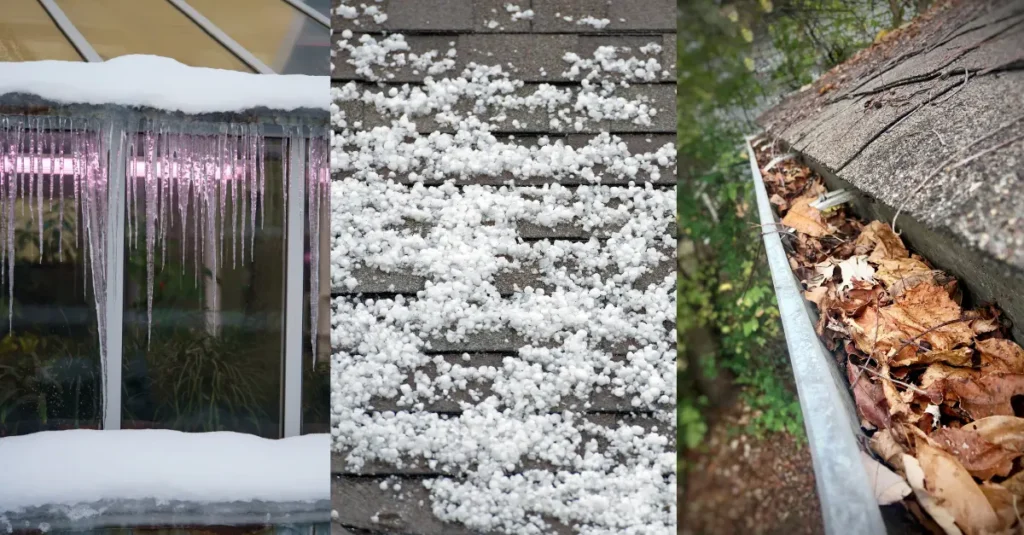
Winter exposes Long Island roofs to freeze-thaw cycles, ice dams, and snow load stress. These seasonal hazards weaken roofing systems silently.
What Winter Roof Damage Should You Watch For?
- Ice dams trap melting snow on the roof, leading to moisture buildup under shingles.
- Snow load adds weight that can lead to structural sagging or decking damage.
- Wind uplift may shift or crack ridge vents and gutters.
Problem | Result |
Freeze-thaw cycles | Cracked or loose shingles |
Roof ice damage | Water seepage under the roof layers |
Blocked gutters | Overflow and fascia board rot |
Long Island winter roofing issues should be addressed immediately in spring to avoid emergency roof repair needs later.
Types of Roof Damage Requiring Spring Repair
Roof issues range from cosmetic to structural and should be classified accurately. Surface damage may signal deeper problems underneath.
What Are the Most Common Spring Repair Types?
- Leaks and puncture holes in roofing membranes or underlayment.
- Broken or missing shingles, often caused by wind or ice.
- Delamination and blistering on flat or asphalt roofs.
- Sagging due to moisture-damaged rafters or ridge boards.
Damage Type | Requires Repair? | Replacement Needed? |
Sealant wear | Yes | No |
Broken shingles | Yes | Sometimes |
Structural sag | Yes | Often |
Roof leak repair in spring prevents damage from spreading into the home’s interior.
Coming up: how to spot these signs early.
How to Spot Roof Repair Needs Before They Worsen
Early detection reduces cost and prevents structural issues. Some signs are visible from the ground or inside your home.
What Are the Warning Signs of Roof Damage?
- Ceiling stains or bubbling paint indicate interior water damage.
- Discoloration or mildew smell in the attic signals moisture infiltration.
- Light penetration through the attic roofline reveals shingle gaps or holes.
Inspection Point | Visible Clue | Recommended Action |
Attic | Wet insulation | Immediate inspection needed |
Ceiling | Brown/yellow stains | Check for leak source |
Roofline | Sag or uneven pitch | Possible structural issue |
Use a home roof inspection checklist each spring. You’ll learn next which materials benefit most from timely spring repair.
Roofing Materials That Benefit from Spring Repairs
Material type affects repair timing, bonding behavior, and repair complexity. Spring’s moderate conditions support optimal material performance.
Which Roofing Materials Respond Best to Spring Work?
- Asphalt shingles: Bonding improves in mild heat; easier to reseal.
- Metal roofing: Less thermal stress during repairs; avoids expansion/contraction problems.
- TPO and flat roofing membranes: Flexible in warmer temps; better adhesion.
- Wood shake: Easier to work with when moisture and temperature are stable.
Material | Spring Benefit |
Asphalt shingles | Enhanced sealing, minimal cracking |
Metal roofing | Reduced warping |
Flat roofing | Improved membrane adhesion |
Wood shake | Easier shaping and sealing |
Roof sealing in spring provides long-term performance benefits. Up next: how to find the best roofer in Long Island.
Hiring a Local Long Island Roof Repair Professional
Choose a licensed, insured roofing contractor with strong local references. Experience with Long Island’s weather and code is key.
How to Find a Reliable Local Roofer?
- Look for certified roof repair Long Island companies with a valid license.
- Check BBB ratings, online reviews, and project galleries.
- Ask about work permits, safety training, and service warranties.
Qualification | Why It Matters |
License and insurance | Protects homeowner from liability |
Local experience | Knowledge of Long Island codes |
References and reviews | Confirm quality and service ethics |
Search “best roofer near me” and compare 2–3 Long Island roofing contractors for quotes
Next: what you can expect to pay.
How Much Does Spring Roof Repair Cost in Long Island?
Roof repair costs in Long Island range from $450 to $1,600 per repair job. Pricing varies by material, damage extent, and roof size.
What Factors Influence Roof Repair Pricing?
- Material costs: Asphalt is cheaper than metal or TPO.
- Labor and complexity: Steeper roofs or structural fixes cost more.
- Disposal and prep fees: Removal of damaged materials adds costs.
Repair Scope | Estimated Cost Range |
Minor shingle repair | $150 – $400 |
Leak and flashing fix | $450 – $900 |
Structural sag fix | $1,000 – $3,000+ |
Request a spring roof estimate early to secure a certified roofer before peak season.
Up next: understanding insurance coverage.
Insurance and Roof Repairs: What Homeowners Need to Know
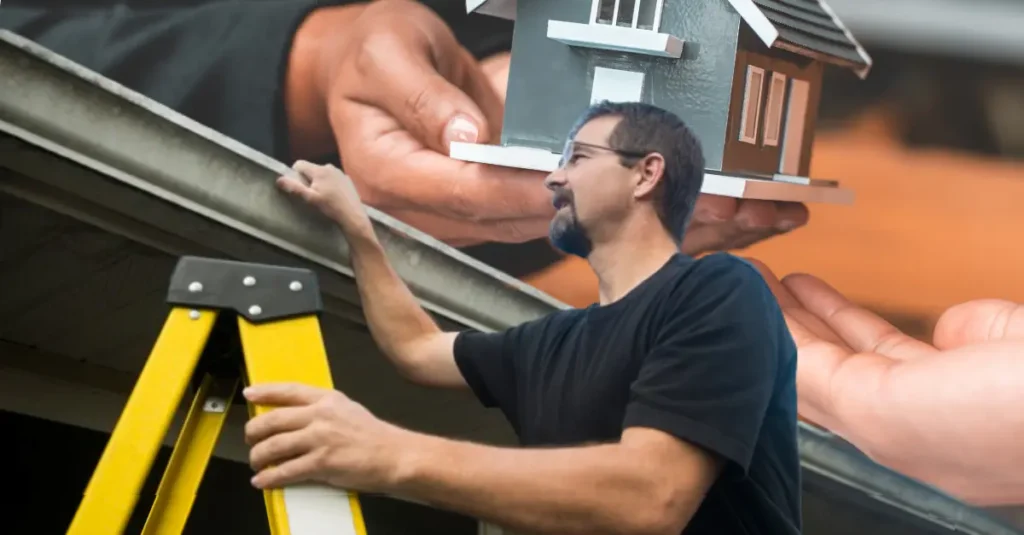
Homeowners’ insurance may cover roof repairs if caused by storms or sudden damage. Proper documentation is critical.
How to File a Roofing Claim?
- Take damage photos and gather a storm report if relevant.
- Contact your insurance policy provider and file a claim.
- Meet with the claim adjuster and share repair estimates.
- Verify your deductible payment and what damage is covered.
Step | Tip |
Before adjuster visit | Get a roofer inspection report |
After claim approval | Schedule licensed contractor |
During repair | Keep all receipts for proof |
Storm damage roof claims often require pre-authorization for repairs. Next, we’ll look at how to prevent future issues with maintenance.
Preventive Spring Maintenance to Avoid Future Roof Repairs
Routine spring maintenance extends roof lifespan and reduces emergency costs.
What Should Be On Your Spring Roof Maintenance Checklist?
- Clean gutters and remove debris from downspouts.
- Check flashing and reseal cracked caulking.
- Inspect ridge vents and remove moss or algae.
- Log inspection results for insurance or warranty purposes.
Task | Purpose |
Gutter cleaning | Prevents water backup |
Moss removal | Protects roof membrane |
Flashing check | Stops early leaks |
Use a preventative roofing plan to avoid issues later. Next: how spring repairs impact home value.
How Spring Roof Repair Enhances Home Value
Spring roof repairs increase resale appeal and home appraisal values. A well-maintained roof signals a move-in-ready property.
How Does Roof Work Improve Real Estate Value?
- Boosts curb appeal and inspection readiness.
- Increases confidence for home buyers and real estate agents.
- Roof certifications can justify higher asking prices.
Upgrade | Resale Benefit |
New or repaired roof | $5,000–$12,000 ROI on resale |
Certified inspection | Shorter time on market |
Visible roof condition | Higher appraisal value |
Spring upgrades help position your house competitively. See below for frequently asked questions.
✅ FAQs: Spring Roof Repair in Long Island
Most jobs finish in 2–5 days, depending on scope and weather.
Yes, for major work. Always verify with your town’s building department.
Many emergency roofers in Long Island offer same-day service.
Less often. Spring has fewer storms and more dry days than fall or winter.
Yes, reputable contractors offer a job warranty—usually 5–10 years depending on material.
Want More High-Quality Roofing Projects on Long Island?
G&V Roofing delivers trusted craftsmanship, reliable service, and local expertise that turns property owners into lifelong clients—all from one professional source.
Our Services:







Learn About:





🏡 Looking to Upgrade Your Roof or Protect Your Property Investment?
Whether you’re a homeowner looking for reliable roof solutions or a property manager seeking fast, expert repairs—G&V Roofing is your go-to Long Island partner for long-lasting protection and peace of mind.
 Follow Us for the Latest in Roofing Care, Property Protection & Home Improvement:
Follow Us for the Latest in Roofing Care, Property Protection & Home Improvement:





